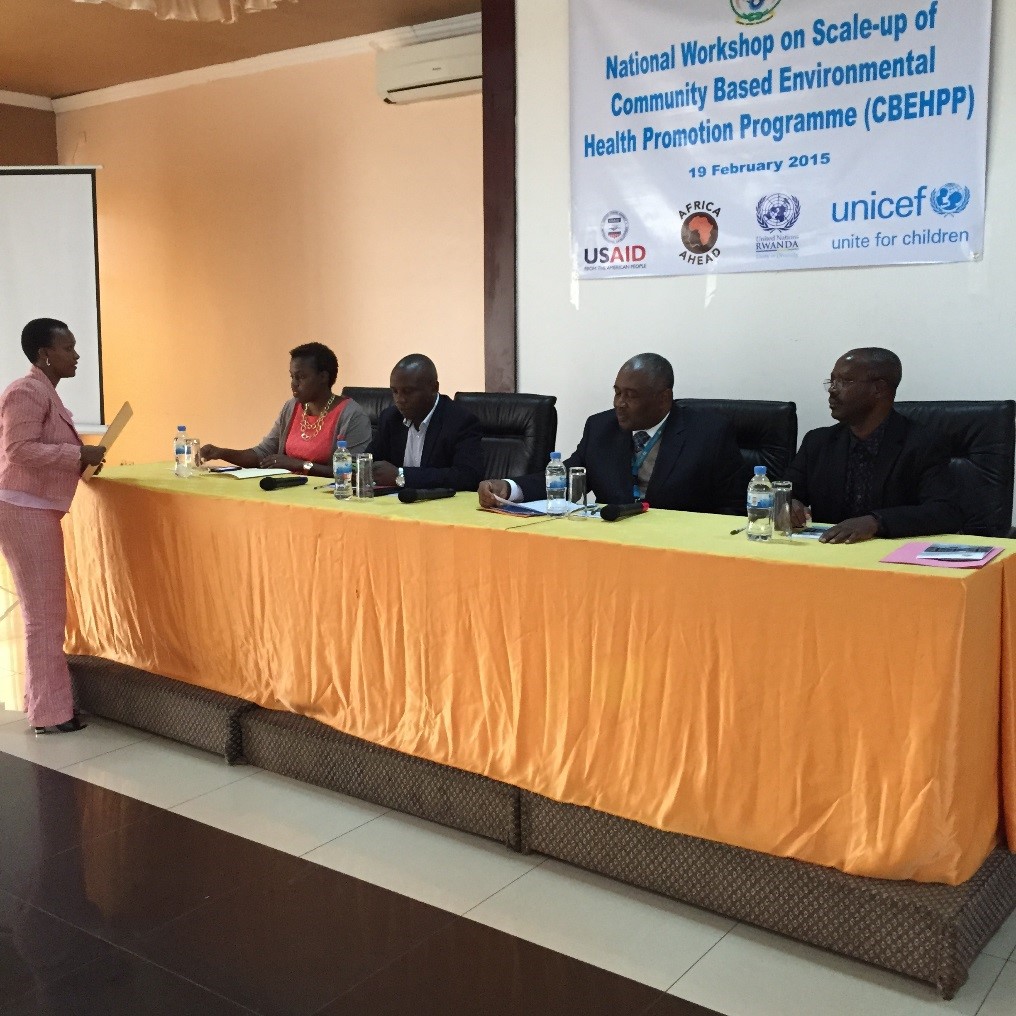The Ministry of Health in Rwanda in line with the provisions of the Third Health Sector Strategic Plan, is committed to ensuring that the Community Based Environmental Health Promotion Programme (CBEHPP) started in 2010 continues to spread to every village in Rwanda in order to enhance safe sanitation and sustainable hygiene practices. To-date 13,472 (90%) of the 14,841 villages in Rwanda have registered CHCs but only 40% (5,433) have been supported with the training programme. Therefore a lot remains to be done to ensure that the training reaches all CHCs, so they become fully active.
This National Workshop that AA co-hosted with MoH, UNICEF and USAID on Thursday 19th February at the Lemigo hotel in Kigali was attended by 68 participants from about 40 NGOs. It was indeed a Milestone event for CBEHPP as it is now rapidly being taken to scale with the objective of reaching 100% of Villages by 2018 as emphasized by the Director General of MoH.
Africa AHEAD Rwanda (AA-R) participated from the beginning as a member of the planning and organizing team providing the presentation for Ministry of Health, Mrs Alphonsine Mukamunana, who presented the history of the CBEHP programme.
2015.2.Scaling up CBEHPP _MoH_AM
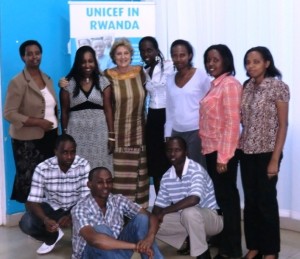
She recalled when CBEHPP was first launched by Government of Rwanda, supported by WSP in December 2009; the development of the training material and Core Trainers Team in 2010 funded by Unicef; and first training of the role out of EHO training in five Districts in 2011.
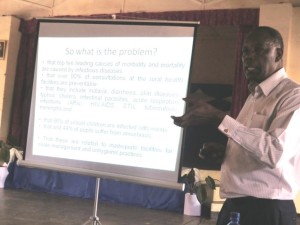
She showed the implementation structure which is now well developed from Environmental Desk at Head Office, MoH to the District Health Unit, through the Social Affairs to Sector, Cell and Village and concluded that the environment was very favourable for scaling up nationally.
‘We are inviting all our partners to actively support the programme, While the Village Social Affairs workers and the Environmental Health Officers are already available, their capacity to achieve positive results through CHCs requires technical support and motivation’
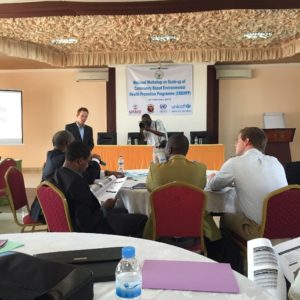
Africa AHEAD was recognised as being behind the CHC / CBEHPP model of development in Rwanda as noted by Dr Murtaza Malik, the new WASH Manager of UNICEF who is championing CHCs. There is also strong support from USAID who appear to appreciate the cross-cutting nature of CHCs that fit nicely with USAID’s interest in Nutrition and Livelihoods.
Africa AHEAD’s presentation was given by the Monitoring Officer Andrew Ndahiro entitled
2015.02.18.National Scale up CBEHPP_Rwanda_AN
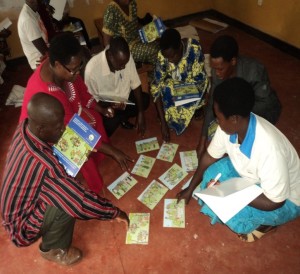
Progress shows that 66% of the 30 districts have active CBEHPP. Of the 13,472 CHCs established, of which 40% have received training, training tools (visual aids) and are conducting the weekly dialogue session. The Village Health Workers (ASOC) who are responsible for the programme are slowly being trained but only 30% have received the training to-date. It is to overcome this shortfall that the workshop is being held to encourage more implementing partners to join this successful government initiative.
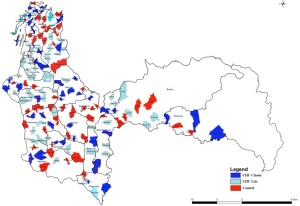
To illustrate the international importance of this national scale up the Gates Foundation are funding a Randomised Control Trial in Rusizi District. Innovation for Poverty Action represented by Ms. Kris Cox, presented a paper to show the progress to date showing the methodology and indicators that IPA is using to establish if Community Health Clubs are an effective way to change behaviour and improve hygiene and sanitation.
To illustrate the international importance of this national scale up the Gates Foundation are funding a Randomised Control Trial in Rusizi District. Innovation for Poverty Action represented by Ms. Kris Cox, presented a paper to show the progress to date showing the methodology and indicators that IPA is using to establish if Community Health Clubs are an effective way to change behaviour and improve hygiene and sanitation.
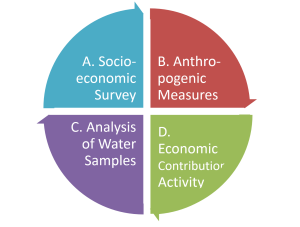
This includes a Socio Econmic survey, measuring height and weight of children and the testing of water quality in the villages. No results are available at the moment but are expected after the study ends in 2016.
2015.2. Scaling up CBEHPP_IPA_ KC.
The Head of WaterAid and Head of Water for People both delivered highly enthusiastic speeches extolling the efficacy of the CHC approach. Both of these INGOs have been implementing CHCs for the past couple of years and appear to fully appreciate the bigger picture and overall potential of CHCs for building cohesion and trust within communities and of empowering women.
The 2015.4. CBEHPP Workshop report_AA is now available.
Agenda:
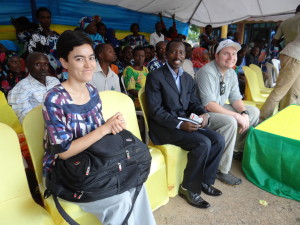
- CBEHPP implementation bottlenecks/lessons learned + recommendations for addressing the bottlenecks.
- National Action Plan for CBEHPP Scale-up (2015-2018):
- Targets for 2015-2018
- Implementation modality and strategies;
- Resources (Financing, IEC materials) and capacity building needs;
- Coordination;
- Monitoring and reporting.
- Mapping of interventions (Who is doing what and where)
Outcomes of the workshop:
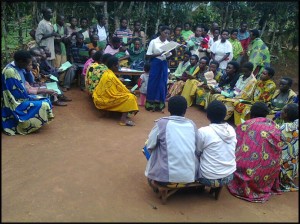
- Lessons Learnt
- Trained and Supported CHCs have made great impacts on community hygiene and sanitation;
- Improvement of Hygiene and Sanitation conditions are better in communities where CHCs exist;
- Functional CHCs contribute to social cohesion and community economic development (VSL);
- Involvement of local leaders strengthens the functionality of CHCs;
- Use of other strategies strengthens CHCs and increases awareness (media, CHC competitions, campaigns).
- Recommendations:
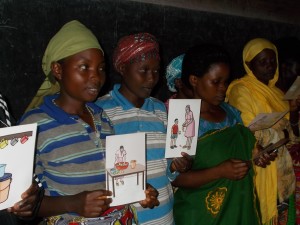
- Effective coordination of CBEHPP stakeholders: Central-Village levels;
- Establish and strengthen proper monitoring, evaluation and reporting system on CBEHPP;
- Put in place a quality Continuing Capacity building of CHCs;
- Allocate funds for CBEHPP implementation at both Central and Community level;
- Organize exchange visits among CHCs and documentation;
- Promote use of locally available materials (slabs, squat hole covers…);
- Link CBEHPP with hygiene campaigns, community radio, Umuganda and other government platforms;
- CHCs can be viewed as community development entry points;
- There is a need for a critical review of the CHC committee for appropriate motivation and follow-up;
- A critical understanding of the manuals and tools used in CBEHPP is required for harmonization of the training and quality implementation;
- Initiate a mechanism for resource allocation especially cross cutting areas like (capacity building, National dialogue, management information system);
- Advocate for including CBEHPP within the District performance contracts;
- Develop CBEHPP training and dialogue tools for urban setting.
Read related Article
By Donah Mbabazi
Kris Cox, the country director of Innovations for Poverty Action (IPA), a US-based NGO, said they are honoured to be part of the programme, adding that they would work with the Ministry of Health to scale it up. She said: “We are collecting data on household assets, housing, and education plus testing the water quality, this way we will be able to determine how the programme is affecting households.”

